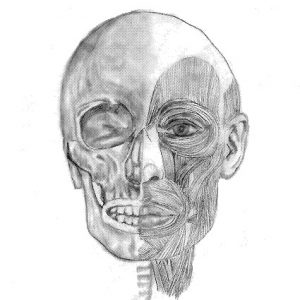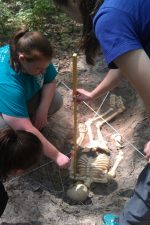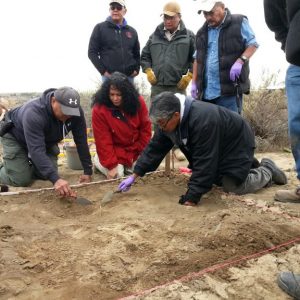Contact the Coordinator of the Social Science Forensics Minor: Dr. Sharon Moses
Minor in Social Science Forensics

The NAU Social Sciences Forensics Minor invites you to delve into the world of forensic science through the lens of social science. You will tour the social, cultural, political, legal, historical and global contexts that contribute to forensic knowledge and crime scene investigation. Students will learn technical and applied field skills in select courses such as: forensic archaeology, crime scene documentation, evidence collection protocols, emergency management for mass casualty events, forensic art, geographic imaging systems (GIS mapping) and more, based upon an Anthropological approach to understanding crime, criminals, trauma and victims.

A minor in Social Science Forensics will position you to have a head start on entry level work in law enforcement and related fields or to make informed decisions on areas of expertise in which you continue your education, whether in specialized forensic programs or graduate studies.
If you aspire to a career in Forensics, explore the Social Science Forensics Minor.
Interdisciplinary Classes to complete the minor
The Social Science Forensics minor is housed in Anthropology. Students choose from classes in Anthropology, Criminology and Criminal Justice, Biology, Communication, and other disciplines.
Read about Dr. Moses and Social Science Forensics in the Real World
Answers to frequently asked questions for students minoring in Social Science Forensics
• Topics courses must have an applied component in addition to forensic relevance and significant social science content. Please consult with your advisor and/or the Coordinator for the Social Science Forensic minor.
• Internships are Optional and are assessed as Pass/Fail. They can contribute to the student’s experience in their area of interest. Pass/Fail courses do not count for credit toward fulfilling requirements in the SSF minor.
• Students who wish to complete an Internship for 3 NAU credits (maximum) must take it as an Undergraduate Research (ANT 485) course, and must make prior arrangement with the Anthropology Faculty member who will oversee the research and who will coordinate with the Internship institution and student’s work supervisor.
• PLEASE NOTE: Arrangements for credit studies in Internships MUST be made at least 4 weeks or more in advance of beginning the internship. Credits cannot be applied during or after the Internship has begun or ended.





